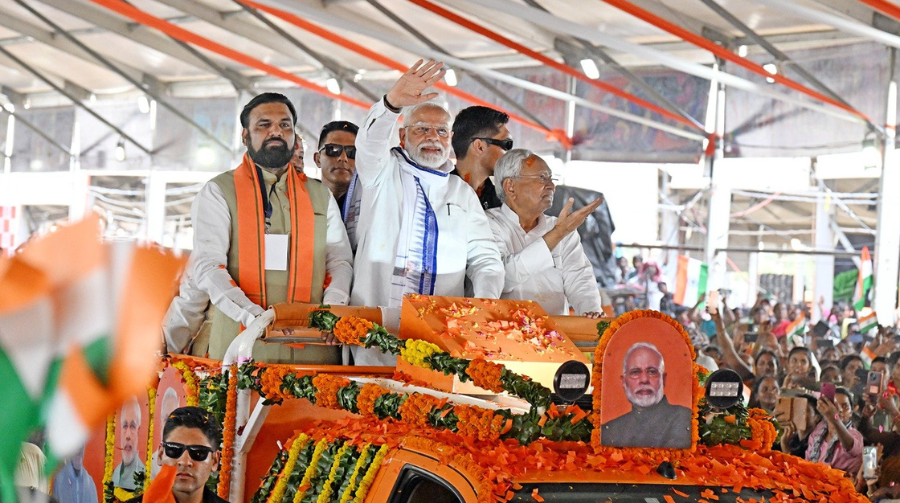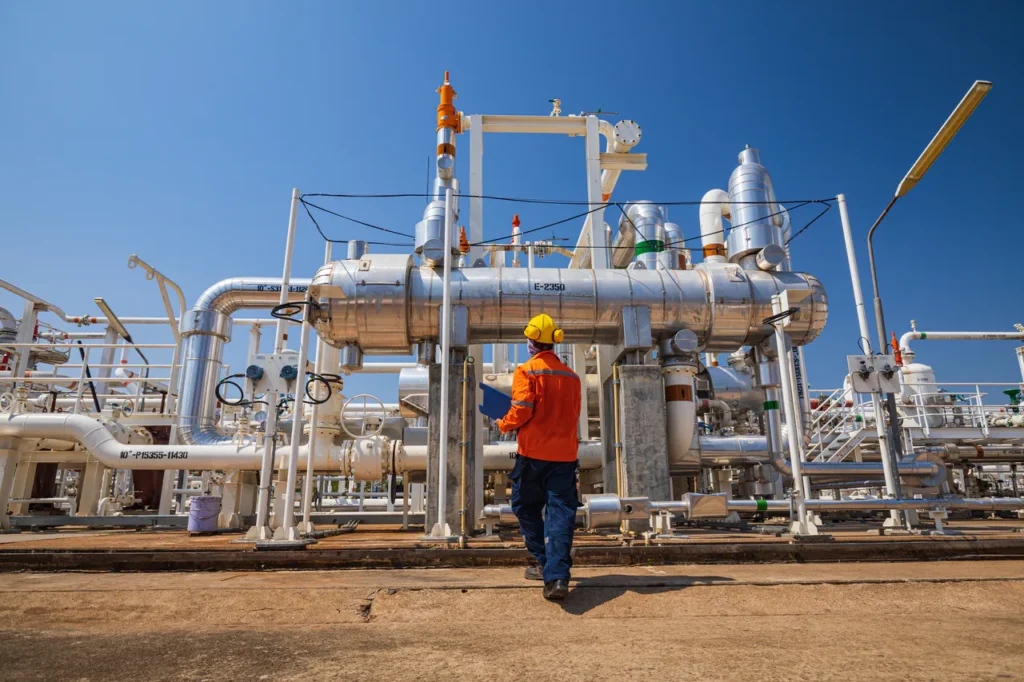Economy & Business
Dubai’s Tresind Studio is the first Indian restaurant to be awarded 3 Michelin stars
A Michelin Star is awarded to restaurants offering outstanding cooking. There are different Michelin stars that are given to restaurants: 1, 2 and 3. Indian restaurant in Dubai, Tresind Studio, was awarded three Michelin stars. Read on to know more.

Slide 1: Cover
🍽️✨ A Historic First for Indian Cuisine!
Tresind Studio in Dubai becomes the first Indian restaurant ever to earn 3 Michelin Stars
#IndianCuisineGoesGlobal #TresindStudio #MichelinStars
Slide 2: The Big Win
🏆 What happened?
On Thursday, Michelin Guide awarded Tresind Studio in Dubai 3 stars –
✅ First Indian restaurant in the world to achieve this
✅ Only 3-star restaurant in West Asia
Slide 3: Meet the Mastermind
👨🍳 Chef Himanshu Saini
A visionary who redefines Indian cuisine
🗣️ “This win proves Indian food is not just nostalgic – it’s progressive and world-class.”
Slide 4: What is a Michelin Star?
⭐ Awarded for:
✔️ Ingredient quality
✔️ Harmony of flavours
✔️ Mastery of techniques
✔️ Chef’s personality in the food
✔️ Consistency
🌟🌟🌟 = Exceptional cuisine, worth a special journey
Slide 5: What Makes Tresind Studio Special?
🥘 Progressive Indian tasting menus
🎨 Plated like art, flavoured with soul
📍 A fine-dining gem in Dubai, reimagining Indian classics with global flair
🌍 Now setting a new benchmark for Indian gastronomy worldwide
Slide 6: A Global Moment for India
🇮🇳 For the first time, Indian cuisine has a 3-star Michelin restaurant
📣 “The time is right for the recognition of Indian food on the world stage.” — Michelin Guide
Economy & Business
From Amrit Bharat Trains to Road Infrastructure: PM Modi Unveils Projects Worth Over ₹7,200 Crore in Bihar

Big Boost for Indian Railways in Bihar: Trains, Tracks & Modernization
One of the event’s highlights was the launch of four new Amrit Bharat Express trains, symbolizing the railways’ reach into deeper Bharat. These semi-modern trains, designed for affordable comfort, will serve key Bihar routes:

- Rajendra Nagar (Patna) to New Delhi
- Bapudham Motihari to Anand Vihar Terminal
- Darbhanga to Lucknow (Gomti Nagar)
- Malda Town to Lucknow (via Bhagalpur)
Each train is expected to improve regional mobility for daily commuters, students, and small-business travelers—reducing dependency on slower express trains.
Other major railway projects launched include:
- Doubling of Darbhanga–Narkatiaganj lines
- Upgrades on Samastipur–Rambhadrapur and Darbhanga–Thalwara routes
- Modern signalling systems across 114 km of key rail corridors
- Energy-efficient electric traction enhancements
- Vande Bharat maintenance shed at Patliputra station, enabling local support for India’s fastest trains
This holistic railway investment will not only improve punctuality and reduce congestion but also prepare Bihar’s tracks for high-speed and high-frequency travel in the future.

Bihar’s Road Network Gets Major Facelift
In a state where many rural zones remain under-connected, road infrastructure is critical. PM Modi laid the foundation stone for several highway and bypass upgrades including:
- Ara Bypass (NH-319) four-laning project
- Improved Parariya–Mohania route, part of the east-west transport corridor
- Widening of Sarwan–Chakai (NH-333C), crucial for Bihar–Jharkhand freight traffic
These roads are vital for linking agricultural mandis, industrial areas, and border districts with national markets. Improved connectivity also ensures faster ambulance and emergency services, especially in flood-prone zones.

Rural Empowerment: Fisheries, Housing, and Women’s SHGs
Rural Housing Milestones:
- 12,000 new homes under PM Awaas Yojana were handed over symbolically
- ₹160 crore was disbursed to 40,000 rural families under PMAY-Gramin
Fisheries Projects under PM Matsya Sampada Yojana:
- Hatchery units, feed mills, and ornamental fish farms in Mithilanchal and Seemanchal
- Sustainable aquaculture for doubling fishermen’s incomes and creating employment in low-income regions
Women Empowerment via SHGs:
- Over ₹400 crore was released to Self-Help Groups (SHGs) through DAY-NRLM, touching the lives of over 10 crore rural women
- These funds will fuel women-led microenterprises in dairy, handicrafts, retail, and more
This layered model of development tackles poverty not just through handouts, but through enterprise, skill-building, and financial independence.
Technology and Startups Get a Launchpad
In a major signal to Bihar’s aspiring youth, the PM inaugurated:
- A new Software Technology Parks of India (STPI) hub in Darbhanga, serving North Bihar
- A startup incubation centre in Patna, expected to generate jobs in tech, AI, digital marketing, and rural e-commerce
These tech zones are expected to retain Bihar’s engineering and IT graduates, often forced to migrate to Bengaluru or Pune for jobs.

Strategic Timing: Bihar Assembly Polls in Sight
This massive ₹7,200 crore launch aligns closely with BJP’s messaging for the upcoming Assembly elections. PM Modi coined a new slogan from the stage:
Banayenge naya Bihar, phir ek baar NDA sarkar
He contrasted the current government’s ₹9 lakh crore funding since 2014 with the mere ₹2 lakh crore Bihar received in the decades before, accusing previous regimes of “neglect and corruption.”
Key political statements:
- Criticized RJD and opposition parties for “betraying the poor”
- Highlighted Nitish Kumar’s alignment with central policies as key to development
- Emphasized job creation, rural infrastructure, and urban connectivity as the path forward
CM Nitish Kumar, who shared the stage, praised the Centre for its focus on:
- Makhana Board for North Bihar exports
- Free power, canal irrigation, and new cold chains for agriculture
At a Glance: ₹7,200 Crore Development Blueprint
| Sector | Key Projects |
|---|---|
| Railways | Amrit Bharat trains, line doubling, Patliputra depot |
| Highways | NH-319 Ara Bypass, NH-333C Chakai road, Parariya–Mohania |
| Tech & Startups | STPI Darbhanga, Incubation Patna |
| Rural Housing | 12,000 homes + ₹160 cr to 40,000 families |
| Fisheries | Hatcheries, feed mills under PMMSY |
| Women’s SHGs | ₹400 cr to 61,500 groups |
| Political Messaging | “Naya Bihar” campaign push |
Final Word
The ₹7,200 crore project rollout by PM Modi in Bihar is a multisectoral, politically astute move that targets every segment: youth, women, farmers, urban commuters, and rural voters. It’s part public service, part campaign, and wholly strategic.
If successful, it could become a model for election-season development launches, merging governance with ground-level optics.
Economy & Business
🛢Oil Prices Hit Multi-Week Highs Amid Dollar Dip and Trade Hopes

What’s Driving the Surge in Oil Prices?
Oil markets saw a sharp uptick today as:
- The U.S. dollar weakened, making oil cheaper for other currencies.
- US–China trade talks signaled potential thawing of tensions.
- Risk appetite increased among investors as equities rose globally.
This combined boost helped both Brent and WTI crude benchmarks notch multi-week highs.

Brent and WTI: Price Movements
- Brent crude: Surged above $67 per barrel
- WTI crude: Crossed $65 per barrel
These levels mark the highest since mid-April 2025, signaling a turnaround from recent stagnation caused by demand concerns and inventory builds.

Role of the U.S. Dollar and Market Sentiment
- A falling dollar index made oil more attractive to buyers holding other currencies.
- Global equity gains—especially post-London trade negotiations—have improved sentiment across risky assets including crude.

Geopolitical and Supply Factors at Play
- OPEC+ compliance remains high with no immediate plans to boost output.
- U.S. rig counts dropped marginally, tightening future supply expectations.
- Geopolitical calm in the Middle East has kept volatility subdued for now.

Impact on India: Fuel Prices & Trade Deficit
- Higher oil prices could pressure India’s import bill.
- Expect marginal increases in petrol and diesel prices at retail pumps.
- Rupee may face headwinds due to stronger dollar demand for crude purchases.
Economy & Business
India’s Coal Power Boom Clashes with Water Scarcity in Vulnerable Regions

New Delhi – June 9, 2025: As India pushes forward with its energy expansion, a worrying clash has emerged between thermal power development and the nation’s water resources. The central government has greenlit ₹80,000 crore (approx. $9.6 billion) in new coal-fired power plants—44 in total—many of which are located in already water-scarce regions.

Environmentalists and policy experts warn that these projects could tip vulnerable ecosystems into crisis, threatening drinking water access, agriculture, and public health in nearby communities.

44 New Coal Plants—and Growing Risks
The Ministry of Power has fast-tracked construction of 44 new coal-fired thermal power plants, aiming to meet rising energy demand and reduce dependence on energy imports. However, a significant number of these projects are located in states like:

- Chhattisgarh
- Odisha
- Jharkhand
- Maharashtra
- Telangana
These are areas already grappling with seasonal droughts, falling groundwater tables, and poor water infrastructure.
Why Coal Power Consumes So Much Water
Thermal plants require vast quantities of water for cooling and steam generation. A single large coal plant can use up to 4–5 million litres of water per day. When dozens of such plants are concentrated in dry belts, local rivers and aquifers face irreversible depletion.
A recent study by the Centre for Science and Environment (CSE) found that over 40% of India’s thermal plants are located in “high water-stress” zones.

Communities Raise the Alarm
Farmers in Korba, Chhattisgarh—often dubbed the coal capital of India—have reported reduced irrigation water availability and recurring crop failures. “We used to get canal water, now it’s redirected to factories,” said Bhupendra Sahu, a local farmer.
In Odisha’s Angul district, tribal communities are staging protests, alleging that water from the Brahmani River is being prioritized for industrial use over drinking water needs.
Government’s Balancing Act
Union Power Minister R.K. Singh stated that “water-saving technologies” such as air-cooled condensers will be employed to mitigate risks. However, environmental groups argue that implementation is inconsistent and oversight is weak.
The National Water Mission has flagged concerns that energy sector growth is outpacing hydrological planning.
Experts Call for Policy Overhaul
Energy experts are urging the government to:
- Shift investment toward renewables and decentralised solar systems
- Conduct cumulative water impact assessments for thermal projects
- Strengthen community water rights and local governance
With climate change intensifying monsoon unpredictability, the risk of water-energy conflict is only growing.
-

 Celebrity Lifestyle7 months ago
Celebrity Lifestyle7 months agoEx-Cricketer Shikhar Dhawan Buys Ultra-Luxury Apartment Worth ₹69 Crore in Gurugram
-

 Crime & Investigation5 months ago
Crime & Investigation5 months agoDelhi Police SI Neetu Bisht Caught Taking ₹20 Lakh Bribe – Shocking Details Emerge in Corruption Probe
-

 Glamour & Entertainment6 months ago
Glamour & Entertainment6 months agoTelegram Channels Disseminating Pro‑Russian Propaganda in Poland
-

 Business6 months ago
Business6 months agoAmazon sets 30‑day relocation deadline for corporate staff—opt out by resigning in 60 days
-

 Entertainment6 months ago
Entertainment6 months agoAbhijeet & Dr Tarika Reunite in CID 2 — Fans Say ‘Clear the Misunderstanding Now
-

 Bollywood4 months ago
Bollywood4 months agoNo ₹3 Lakh Fine or 2-Year Jail: The Truth Behind the ‘Hakla’ GIF Buzz
-

 Celebrity Lifestyle6 months ago
Celebrity Lifestyle6 months agoMaha Kumbh Girl Monalisa seen in car allegedly worth ₹1 crore
-

 Education6 months ago
Education6 months agoNEET UG Controversy Explained: Paper Leak, Impersonations & Ongoing Probe




